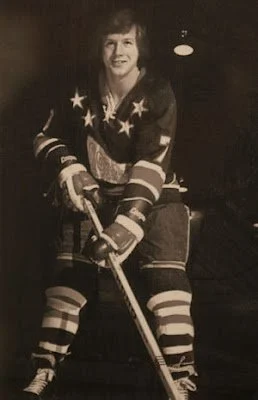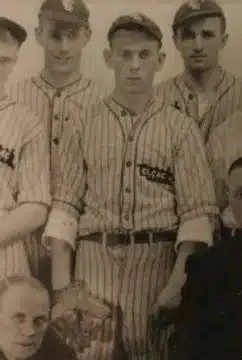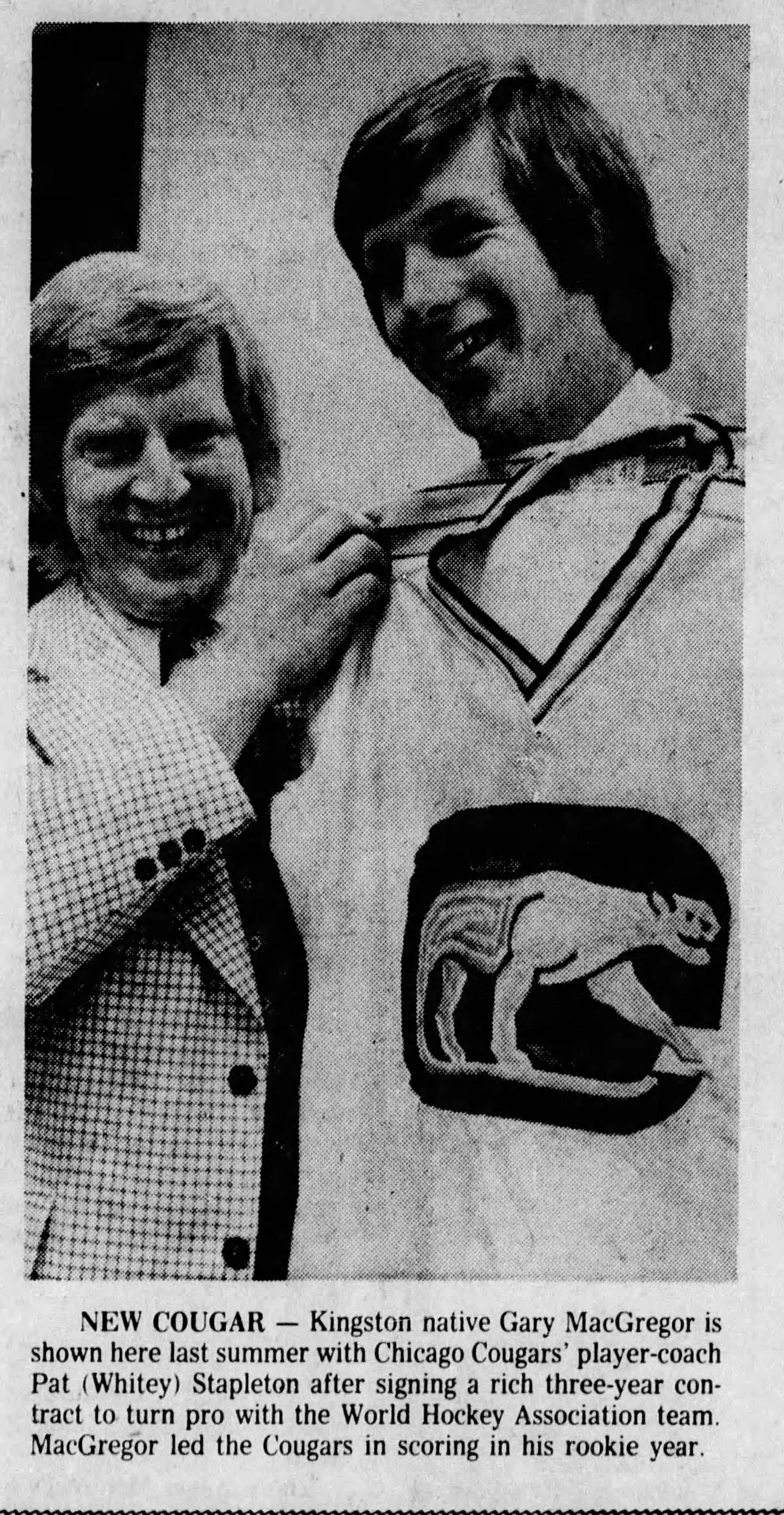Mark Potter: Remembering Gary MacGregor, 100-goal a season man, 1971 OBA midget champ
Gary MacGregor: Ahead By A Century
Gary MacGregor (Kingston, Ont.) was one of the best skaters from Canada’s first capital scoring 100 goals in a single season for the Cornwall Royals in Quebec Major Junior League.
May 25, 2025
By Mark Potter
KTown Sports Blog
Gary MacGregor belongs to one of hockey’s most exclusive clubs.
The Century Club.
You can count on one hand players who have scored 100 goals in a single season. MacGregor (Kingston, Ont.) hit the century mark in 1973-74 with the Cornwall Royals, lofty heights for an undersized centre, a diabetic who honed his craft playing street hockey.
The MacGregor’s grew up on Hamilton Street, a slap shot away from the Kingston Memorial Centre. George and Audrie had four kids, Karen, Debbie, Gary and Cam. The youngest, Cam, had a pretty good career of his own, he starred for those great Doc Wagar teams that won a Silver Stick and played in the Wrigley Cup.
Cam followed Gary to Cornwall, no easy task, and had a 61-goal season before being drafted by Buffalo and winning a Calder Cup with Hershey in the AHL.
On the phone from his home in Berlin, NJ, the memories come flooding back for Cam as he recalls endless neighbourhood street hockey games played morning, noon, and night. Gary perfecting his shot by ripping tennis balls at his younger brother, who had the welts to prove it. In the winter they moved over to the outdoor rink at the Memorial Centre.
The MacGregor’s grew up in the shadow of their father George MacGregor, a Kingston hockey star from a generation earlier. Many said he was among the best to come out of the Limestone City in that era, he won championships with the Kingston Locos, the Goodyears and played semi-pro hockey in Tulsa and in the Maritimes.
Cam recalls his Dad’s straightforward advice, “Work on a quick release, shoot the puck as hard as you can. Try to anticipate the play, be two or three steps ahead of the game to figure out where the puck is going.”
Sounds a lot like Gretzky in the 1980s.
A natural goal scorer, Gary lit it up right from the start. As a youngster playing in the Church Athletic League, his sister Debbie remembers her small, freckle-faced brother coming home from one of his first CAL games excited he had scored nine goals.
He joined Rotary Kiwanis Minor Hockey, played for the Royals and the Hawks, was on all-star teams that competed a division higher against older kids. Always the smallest player on his team, he scored in bunches, every opposing coach and opponent knew who he was and tried to shut him down.
His 1970-71 Kingston midget team was coached by former NHLer Lorne Ferguson, they won the league championship and had several players taken in the 1971 OHA draft. MacGregor was drafted by the Niagara Falls Flyers, run by the legendary Hap Emms.
Gary’s father had a history with Emms, and he did not want his son to play there. So, how did he wind up in Cornwall? The MacGregor’s mailman was Paul Garrison, he happened to be a scout for the Cornwall Royals. Garrison knew what kind of player Gary was and that summer delivered an invite to the Royals training camp.
Barry Brooks was a family friend and played in Cornwall the previous season, he encouraged Gary to give it a shot. Bob Murray, Kevin Treacy (MacGregor’s longtime winger in minor hockey), Tom Goodfellow and goalie Tom Wynne were all Kingston guys headed to Cornwall’s camp.
Legendary scout Gord Wood won three Memorial Cups and built a reputation for stealing great players from Kingston, but Wood didn’t join the Royals until the fall of 1971. It was a Kingston postie, Garrison, who delivered MacGregor to Cornwall.
3B MacGregor was part of the Kingston Blaney’s Ponies that won the 1971 midget OBA title … missing camp with the Royals to do so.
MacGregor was also a solid third baseman who hit for average for the 1971 Kingston Blaney’s Midget Ponies, coached by local legend Arnie (Ol’ Hickory) Jarrell, who went 21-8 with a 2.30 ERA for the 1946 class-C Kingston Ponies.
Jarrell’s Kingston team played Welland in the Ontario final and the series stretched into September. MacGregor and Kevin Treacy left the Royals camp for a weekend to go home and play two games at Megaffin Stadium, they beat Welland twice and were crowned Ontario champions.
Other members of the Kingston championship Blaney’s midget team included Greg Orr, Joe Devine, Craig Gavel and Shaun Wight. It ended a drought for Kingston baseball that lasted over two decades, the last OBA minor team to win an Ontario title was Bill ‘Squeak’ Reason’s Juvenile ‘A’ team in 1948 with Don Keenleyside, Jack White and Don Gilmour.
Back on the ice, MacGregor didn’t look like a rookie in his first year in Cornwall. Playing on a line with Treacy he scored 39 goals. His Royals teammate, Kingston defenceman Bob Murray edged him out for the Quebec league’s rookie of the year honours.
Cornwall went to the Memorial Cup final against the Peterborough Petes at the Ottawa Civic Centre. With the entire MacGregor family on hand, it was tied 1-1 early in the third when MacGregor wired his trademark slap shot for the game winning goal, as he had done a million times before playing road hockey on Hamilton Street. Cornwall won its first Memorial Cup with a 2-1 victory.
Back home that summer working for a local swimming pool company, he was always thirsty and started rapidly losing weight. Doctors discovered Gary was diabetic. They reached out to the Philadelphia Flyers, Bobby Clarke was an NHL star and also diabetic.
The Flyers connected them with Clarke’s personal physician who was a tremendous help. Years later when his brother Cam moved to New Jersey, he became a patient of Clarke’s doctor and they traded many hockey stories. Yes, the hockey world is a small world.
Gary lost 30 pounds that summer and spent time in hospital, missing the first two months of the season. His family considered moving him to Ottawa to live with his aunt and uncle and to play for the 67’s. Cornwall didn’t want to trade him, a new billet was found and he returned to Cornwall.
He never missed a step, scoring 43 goals in 45 games. In the playoffs with pro scouts watching him closely he had remarkable run scoring 26 goals in 16 games. Unheard of at any level of hockey.
Entering his final year of junior MacGregor was a huge star in the Quebec League, but it wasn’t easy. He didn’t speak French, played for the league’s only Ontario-based team and took a lot of abuse from fans and opponents. MacGregor was small, but he was also tough and strong willed, he battled through and had a season for the ages.
He was stuck at 99-goals going into the final night of the season — game 66 of the season — against Trois-Rivieres. Always a clutch scorer he got his 100th goal that night to put his name in the record books alongside Guy Lafleur – who did it twice.
Gary collected 174 points and was named league MVP. Unfortunately, it was a short playoff run as Laval upset Cornwall in the opening round.
Now the focus was on the NHL amateur draft, with MacGregor projected to be a top pick. Rumours circulated he was leaning towards playing in the World Hockey Association. The Chicago Cougars took him in the first round, 10th overall. At the NHL draft, he dropped down to 30th overall and was drafted by the Montreal Canadiens.
The Habs were deep at centre and won six Stanley Cup’s in the 1970s. Limited opportunities for any rookie, even one who had scored 100 goals.
MacGregor jumped at a lucrative offer from Chicago, a three-year deal starting at $100,000 a season, a $100,000 signing bonus and a contract guaranteed by the league (not the team). The Cougars bought Gary a 1974 Pontiac Grand Prix for the drive home, and he bought himself a cottage on the St. Lawrence River near Kingston, along with a new boat.
Gary arrived as advertised in Chicago scoring 43 goals in his rookie season and named rookie of the year by the Sporting News. He got to know Chicago Cubs future Hall of Famer Ron Santo, also a diabetic, and they compared notes on balancing the life of a pro athlete with diabetes.
His time in Chicago lasted one season, the team folded and most of the players were sold off to a new franchise in Denver nicknamed the ‘Spurs’. Gary bought a beautiful home in a gated community outside Denver, living beside teammate Ralph Backstrom.
Gary’s hope was to put down roots and spend many years in Colorado, but by Christmas the Denver Spurs were broke and most of the players relocated to Ottawa.
While it was close to home in Kingston, the Ottawa Civics were a disaster. The franchise lasted seven games (two on home ice) before folding. One of the shortest runs for any franchise in the history of pro sports. MacGregor finished the season in Cleveland, his third team during the 1975-76 season.
Buying and selling houses and moving from city to city helped prepare him for a post hockey career in real estate, but it didn’t help his game.
He played for four teams in the WHA that went bust, Chicago, Denver, Ottawa and Indianapolis. The instability of the WHA became tiring, bouncing from city to city, playing for new teams, new coaches and new teammates, most players worried if their next pay cheque would bounce.
His diabetes also brought daily health challenges to manage as well. In his final season in the WHA, he played briefly with the Indianapolis Racers with first-year pros Wayne Gretzky and Mark Messier. The Racers would also fold and it marked the end of Gary’s WHA career.
Gary recalled a time running into the Montreal Canadiens at an airport and he was approached by Scotty Bowman. He told MacGregor he would regret not signing with Montreal. They spoke briefly and despite the constant turmoil in the WHA, Gary was always comfortable with his decision to opt for the rival league.
Eventually he gave up hockey and returned home to Kingston to start a new career in real estate. He loved his cottage and his summers, his brother Cam said, ‘Next to hockey, Gary’s greatest love was being on the water.” Adding, “he enjoyed his summers on the river, he would water ski, make regular trips by boat to visit cottage friends, hosted large parties and made trips to Alexandria Bay, NY where he hosted an annual golf tournament for his hockey friends.”
An avid golfer playing out of Cataraqui, he carded a three handicap.
Life was good and it was shocking when at age 40 Gary died suddenly of a heart attack at his Richardson Drive home in April,1995. The news devastated the local sports community and the hockey world. Two years earlier, the MacGregor family had lost Gary’s father.
When he passed away, legendary scout Gord Wood described him as, “The greatest goal scorer I ever had,” to Patrick Kennedy, The Whig-Standard scribe. “MacGregor was a tough kid, too, played hard all the time and could he ever fill that net.”
In 2002, Gary joined his father George in the Kingston & District Sports Hall of Fame. His proud younger brother Cam accepted on Gary’s behalf, saddened by a life cut way too short.
It has been 30 years since Gary MacGregor’s sudden passing.
The smallish Kingston kid was an effortless skater with an overpowering slap shot. A diabetic, he overcame every obstacle to etch his name into hockey’s record books. And for a time in the 1970s, he was hockey’s greatest goal scorer.
* * *
Mark Potter, a longtime Kingston broadcaster and a civic treasure, is past president of the Original Hockey Hall of Fame and honoured member of the Kingston & District Sports Hall of Fame. In 1994 MacGregor was a guest on Mark’s Cogeco-TV show, ‘Sports Profiles’.



